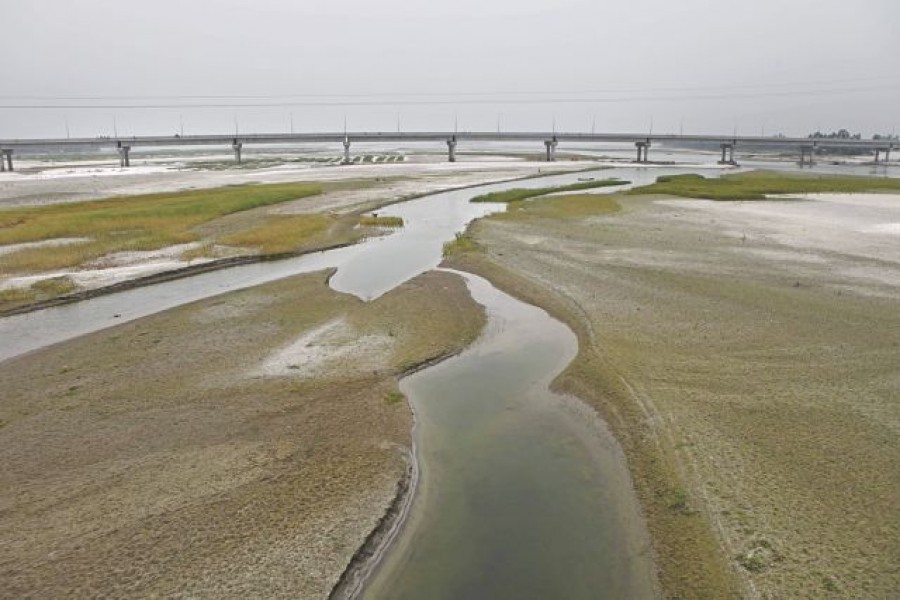
Published :
Updated :

The fact that the government has, reportedly, decided to undertake the Teesta River management and restoration project is undoubtedly a well-thought-of one. For understandable reasons, the decision has come after a long delay. But it is only the inhabitants of the region washed by Teesta River know what a year's delay means to their lives. With water control structures built in the upstream of Teesta, the flow in the downstream region in Bangladesh has drastically shrunk in recent years to add to their woes. As for instance, the flow has come down from 6,500 cusecs in the dry season in 1997 to a mere trickle of 300 cusecs in 2016. Worse still, during the monsoons, floodwater rushing from upstream bursts the river banks, leading to erosion that destroys settlements and damages crops. No wonder that Bangladesh has been so keen to dredge and train the river. The proposed project will have, as could be learnt from reports, 100 km-long embankments along either side of the river. Also, the embankments will extend from the Teesta barrage point in the upstream on the Indian side of the border to the confluence of Teesta and Brahmaputra rivers downstream.
Ironically though, despite having warm diplomatic relationship between the two next-door neighbours, a water sharing deal on Teesta River could not be materialised between Bangladesh and India over the past years. Against this backdrop, last year Bangladesh approached the Chinese authorities to finance a proposal on Teesta river restoration and management, though with somewhat higher project outlay than the current one. It drew huge interest in the Indian media and diplomatic circles. Even so, nothing moved an inch as far as the issue of Teesta water treaty is concerned. And with the passage of time, things are getting more uncertain. Unsurprisingly, such impasse on the diplomatic front may have prompted the government to make the present move for the Teesta project. On this score, it cannot, however, be said that the unwanted delay that has been caused thus far for reasons beyond Bangladesh's control in its search for seeing an amicable settlement to the Teesta water issue has been entirely wasted. For it has to be acknowledged that, as a lower riparian, Bangladesh until now has left no stone unturned at all levels to resolve the Teesta water question through talks. And no government accountable to its electorate can allow an issue that is a life and death question for tens of millions of people to be left hanging in the air.
Now that after decades-long wait, the government has made the move to implement the Teesta project, it should not waste any more time to see that the formalities regarding it are completed within the shortest possible time. It is believed that once executed in time, the Teesta project will be able to deliver the goods. As expected, Teesta water being the source of sustenance for some 21 million people of the Teesta River basin, the project will give them a new lease of life. One word of caution, though. The move should be duly cognisant of concerns for environment and people's relocation and have provisions for redress. As so much is at stake, the government should consider the execution of the Teesta project a major challenge before it. It must prove itself equal to the task.


 For all latest news, follow The Financial Express Google News channel.
For all latest news, follow The Financial Express Google News channel.